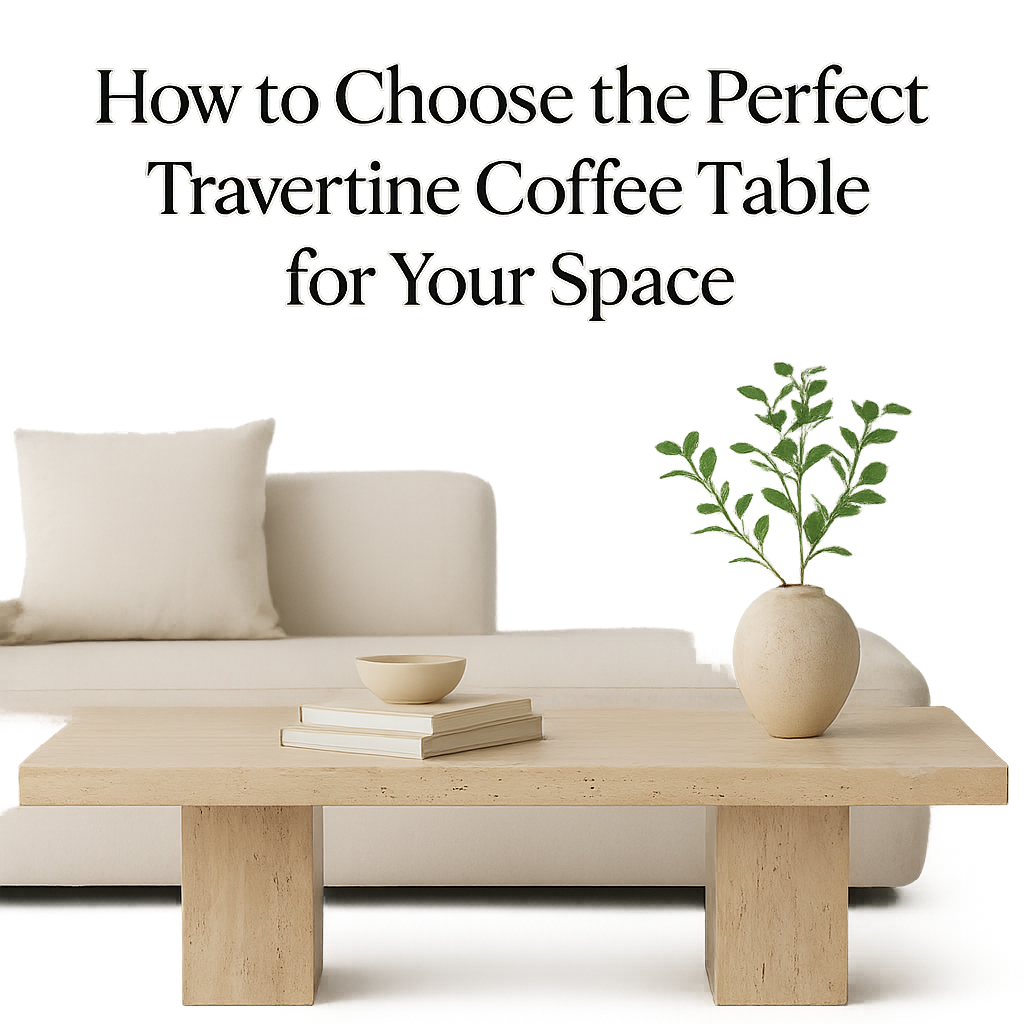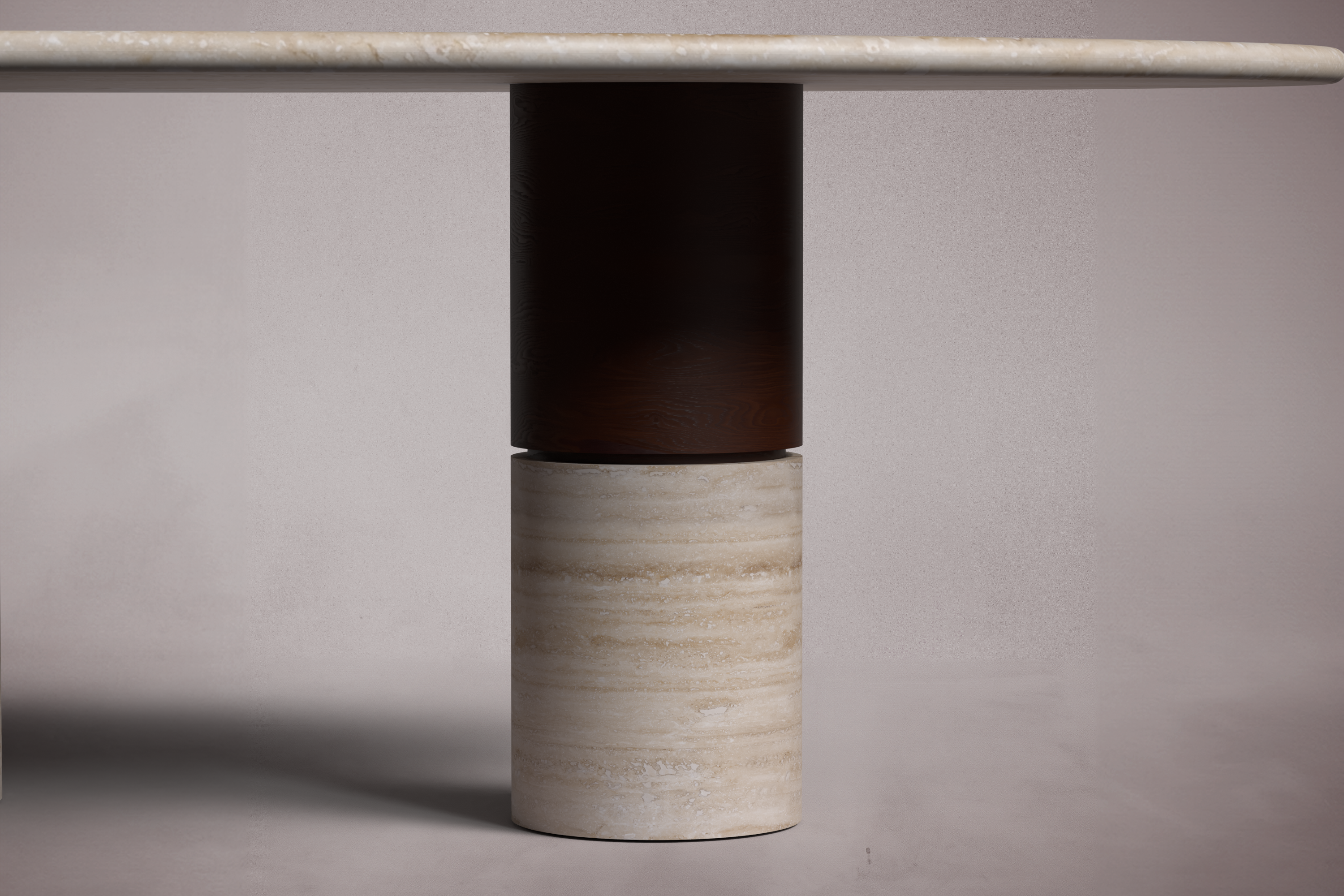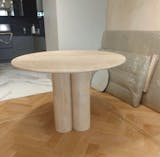
How to Choose the Perfect Travertine Coffee Table for Your Space
Looking to add warmth, elegance, and natural character to your living area? A travertine coffee table is a timeless choice that can instantly elevate your home. Here’s a designer-approved guide to help you pick the perfect one.
1. What Is Travertine and Why Designers Love It
-
Natural beauty: Travertine’s soft beige to warm brown tones and unique veining make each table one-of-a-kind.
-
Timeless appeal: Interior designers frequently use it in both minimal and luxurious designs. Its matte or naturally textured finish creates a calm and grounded atmosphere.

2. Get the Size and Shape Right
-
Ideal proportions: The table should be at least half but no more than two-thirds of your sofa’s length. Height should be within 4 inches (≈10 cm) of the seating height.
-
Shape considerations:
-
In smaller or open-plan spaces, round or oval tables improve flow and prevent a cramped look.
-
In large living rooms, rectangular tables offer symmetry and functionality.
-
-
Placement distance: Keep 14–18 inches (≈35–45 cm) of space between the sofa and the table for comfortable movement.

3. Finish and Material Details
-
Filled vs. unfilled travertine:
-
Filled travertine has its natural pores sealed with resin or cement for a smoother, more stain-resistant surface.
-
Unfilled travertine offers a raw, rustic look but requires more maintenance.
-
-
Surface textures: Options include honed (matte), polished (glossy), and tumbled (antiqued), each changing the table’s character and feel.
4. Styling Like a Designer
-
Designer insight:
-
According to Vogue’s featured designer Colin King, leaving negative space on a coffee table allows each decorative object to stand out. Styling with curated books, sculptural objects, or a minimal vase adds balance.
-
Travertine’s natural detailing shines when paired with greenery, metallic accents, or ceramics.
-
-
Color pairing:
-
Travertine’s creamy tones pair beautifully with whites, earthy rust, and muted blue-greys, creating a sophisticated yet warm atmosphere.
-
-
Texture layering: Balance the stone’s coolness with soft fabrics, boucle cushions, leather accents, or a textured rug for a cozy yet elegant look.

5. Practical Care and Maintenance
-
Porous nature: Travertine is naturally absorbent and can stain with acidic liquids or heat. Use a pH-neutral stone cleaner and avoid harsh chemicals.
-
Sealing: Apply a protective sealant every 1–2 years. You can test by sprinkling water—if it absorbs quickly, it’s time to reseal.
-
Weight and floor protection: Travertine tables are heavy. Use felt pads or a large area rug to protect delicate floors.
6. Design Inspiration
-
Leading designers favor monolithic rectangular or sculptural round travertine tables, often placed as centerpieces in modern or earthy interiors.
-
Over time, travertine develops a natural patina, adding depth and character to your living space.
| Feature | Recommendation |
|---|---|
| Size & Shape | ½–⅔ sofa length; round/oval for small rooms, rectangular for large |
| Finish | Filled for stain resistance, unfilled for rustic charm |
| Color Pairing | Whites, muted blues, earthy rust tones |
| Styling | Negative space, books, greenery, metallic accents |
| Maintenance | Neutral cleaner, seal every 1–2 years, use felt pads |
| Mobility | Heavy and best for stable placement |
Final Thoughts
Choosing the perfect travertine coffee table is more than size and shape—it’s about balancing design, function, and timeless beauty. As interior designers suggest, a well-styled travertine table doesn’t just sit in a room—it tells a story, evolving naturally with your home over time.
Explore Our Travertine Coffee Table Collection
Ready to bring timeless elegance into your living space?
Discover our exclusive selection of handcrafted travertine coffee tables – available in round, oval, and rectangular designs, each made from premium natural stone.






